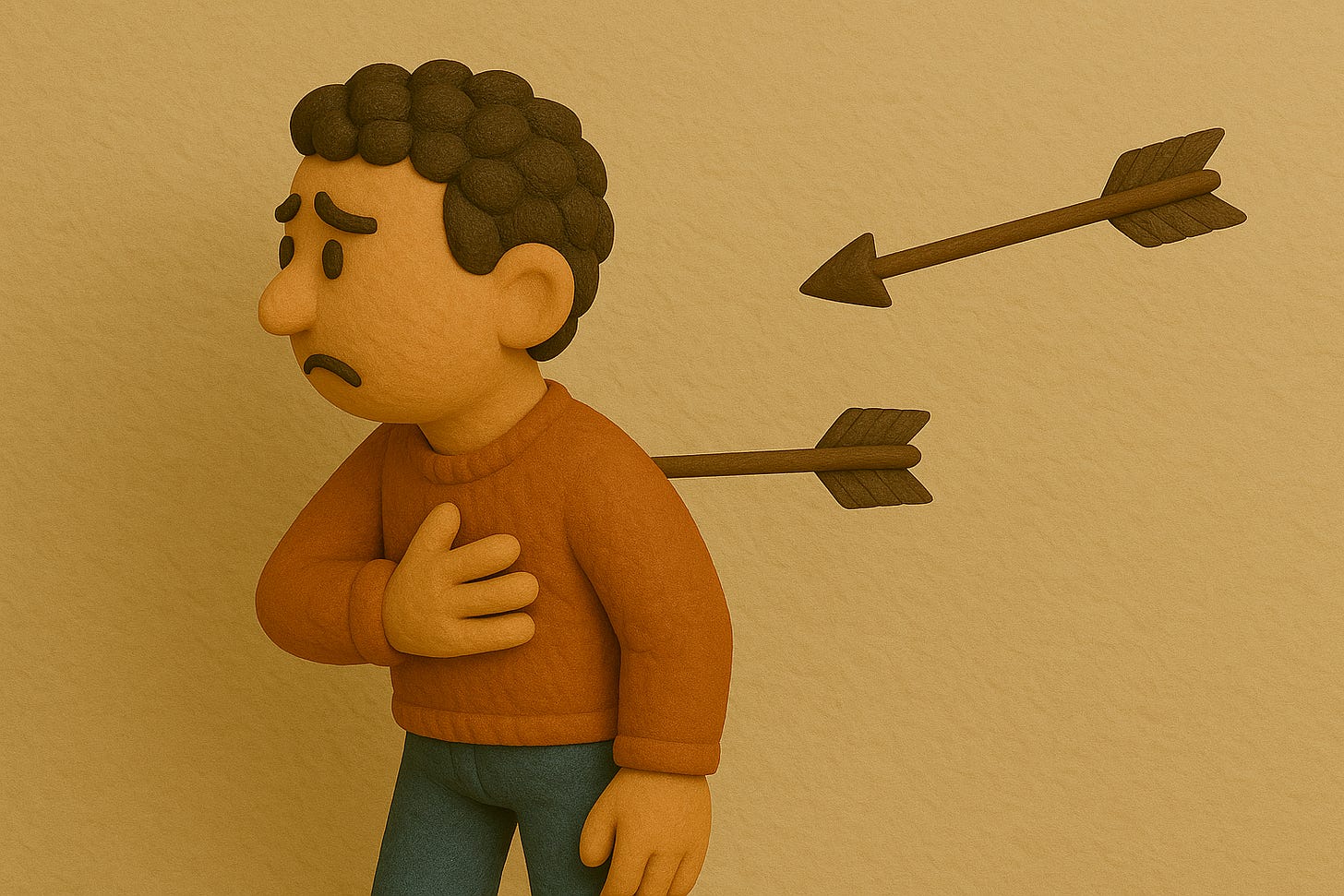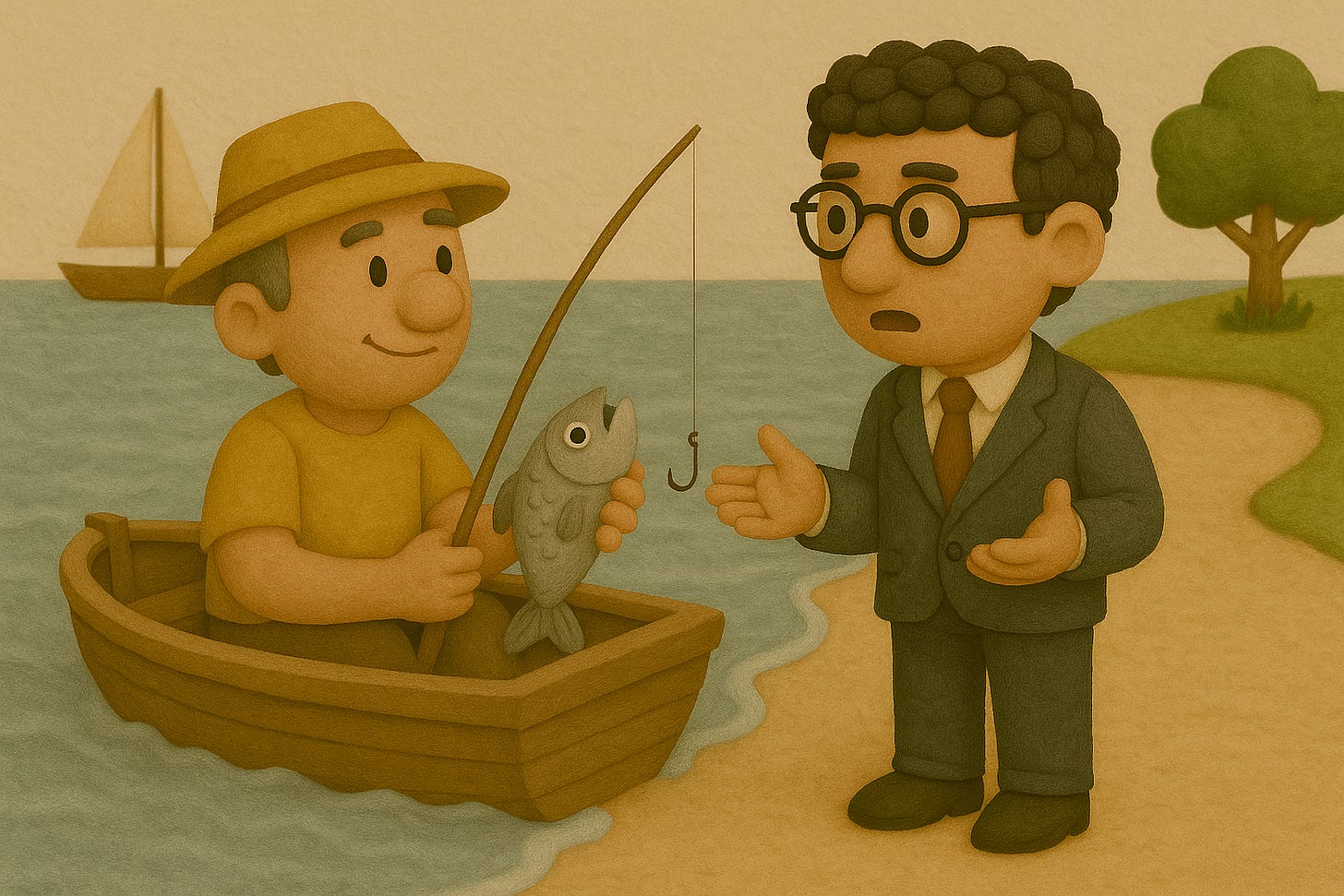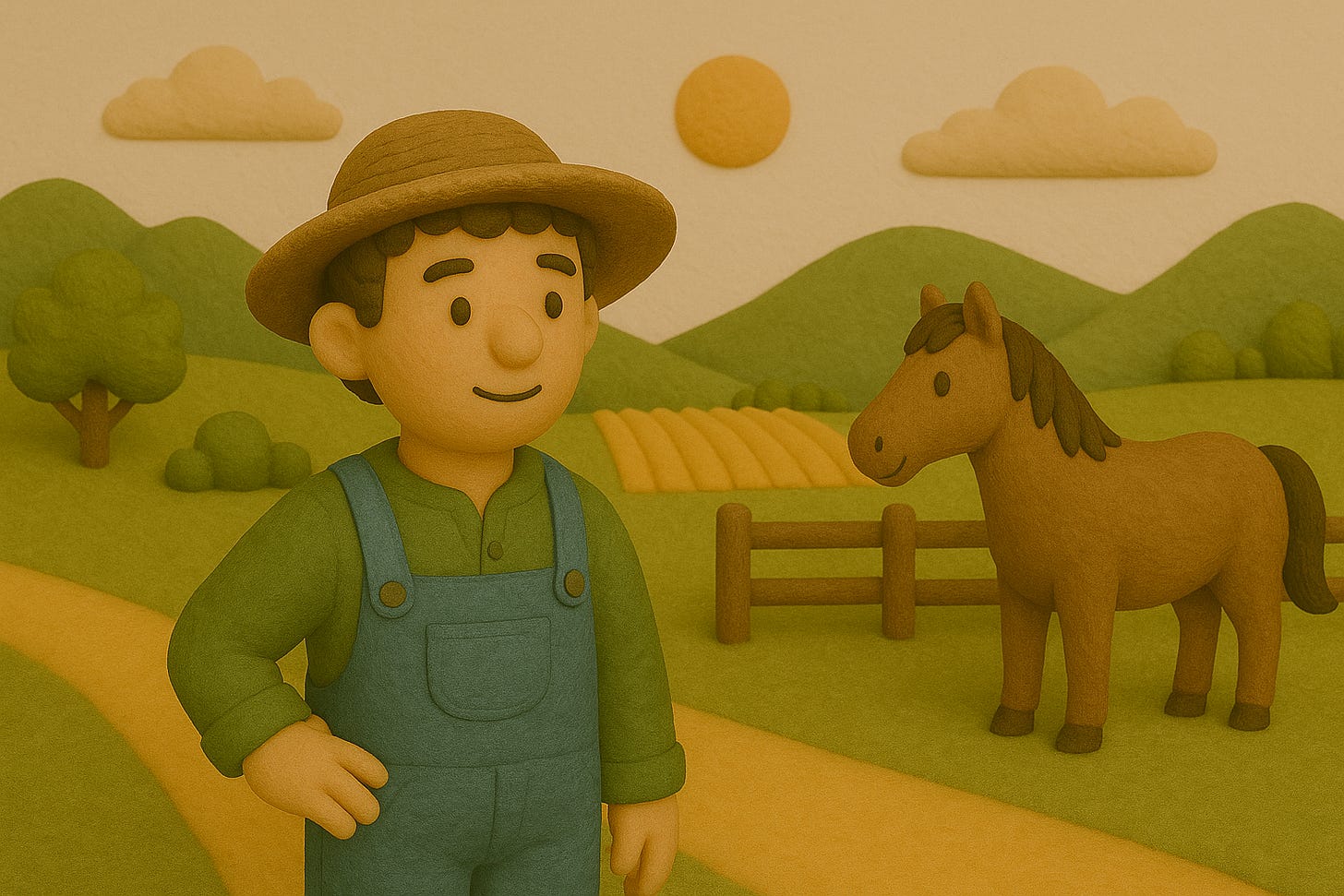3 Stories That Changed How I See Life
What a Buddhist, a Fisherman, and a Chinese Farmer Taught Me About Life
Today, I want to do something different. Instead of frameworks or systems, I’ll share three short parables that have shaped how I view life.
They’re simple stories, but they function as powerful mental models and guides to navigate difficulty, ambition, and uncertainty. I think of them almost every single day.
Life Lessons Hidden in 3 Old Stories
We live in a world obsessed with optimization. More work, more ambition, more success. But hidden in the constant striving are traps: unnecessary suffering, endless ambition loops, and premature judgments about what life events mean.
The beauty of parables is that they cut through the complexity. Each story is a reminder that:
Pain is inevitable, but suffering is optional.
Enough might already be in your hands.
Events are neither good nor bad until time reveals their consequences.
So let’s break them down.
The Two Arrows: Understanding Suffering
There is a Buddhist teaching called “The Two Arrows” that is as relevant today as it was centuries ago.
Here’s the essence of it:
Imagine you’re struck by an arrow. The immediate pain is the first arrow—the inevitable suffering of life.
Illness, loss, rejection, accidents are the unavoidable hardships we all face. The first arrow hurts, but it’s a part of the human experience.
Then comes the second arrow. This is the suffering we add on top of the initial pain. It’s our reaction: the anger, self-pity, and thoughts of “Why me?” Unlike the first arrow, the second is entirely optional.
We shoot it into ourselves by resisting or over-identifying with the pain.
The key takeaway? While we can’t always avoid the first arrow, we can stop the second.
Through mindfulness, awareness, and acceptance, we can feel the pain without multiplying it into unnecessary suffering. The second arrow often lingers far longer than the first, yet it serves no purpose.
So, the next time life strikes you with an arrow, remember: endure the necessary pain, but don’t inflict additional suffering on yourself.
The Fisherman’s Tale: Redefining “Enough”
The second story, The Fisherman’s Tale, is a powerful reminder to reassess our definitions of success and fulfillment. Here’s how it unfolds:
A banker on vacation meets a fisherman in a small village.
The fisherman has caught enough fish for the day and is relaxing.
The banker, puzzled, asks why he doesn’t stay out longer to catch more.
The fisherman replies, “I already have enough to support my family for today.
I spend the rest of my time sleeping late, playing with my kids, taking a siesta with my wife, and strolling into the village in the evening to sip wine and play guitar with my friends.”
The banker lays out a grand plan: “If you spent more time fishing, you could buy a bigger boat, catch more fish, earn more money. Eventually, cou could open a fleet, even move to the city to run the business. After 20-30 years, you’d retire rich.”
“Then what?” the fisherman asks.
The banker responds, “Then you could move to a small fishing village, sleep late, fish a little, play with your kids, take a siesta with your wife, stroll intro the village at night, sip wine, and play guitar with your friends.”
The moral? Many of us chase long, complex paths to achieve what we already have, simply by redefining what “enough” means.
As ambitious individuals, just like the banker we often sacrifice today for an imaginary tomorrow. But, as the fisherman demonstrates, true fulfillment lies in appreciating the present and recognizing that we may already have enough.
The Chinese Farmer: Don’t Judge Too Soon
The third and final story is my personal favorite: The Tale of the Chinese Farmer. It’s a lesson in withholding judgment and embracing life’s uncertainties. Here’s the story:
Once upon a time, there was an old farmer in a village.
An old farmer’s horse ran away.
His neighbors said, “Such bad luck!”
The farmer replied, “Maybe yes, maybe no. We’ll see.”
The next day, the horse returned with several other horses.
The neighbors exclaimed, “What good fortune!”
The farmer again said, “Maybe yes, maybe no. We’ll see.”
Then the farmer’s son tried to ride one of the new horses, was thrown off, and broke his leg.
The neighbors cried, “How terrible!”
The farmer responded, “Maybe yes, maybe no. We’ll see.”
A week later, soldiers arrived to recruit young men for war. They saw the farmer’s son with a broken leg, and left him behind.
The neighbors cheered, “How lucky!”
The farmer simply says, “Maybe yes, maybe no. We’ll see.”
The lesson? Rarely is a life event entirely good or bad. What appears as a blessing can lead to hardship, and what seems like misfortune can open new doors. We often don’t know the true impact of an event until years later, and even then, we might not know yet.
The wise approach is to withhold premature judgment and accept life’s uncertainties.
Applying These Lessons to Everyday Life
These parables offer practical mental models for navigating life’s challenges:
The Two Arrows: Practice mindfulness to avoid unnecessary suffering. Accept the pain of the first arrow, but don’t shoot the second arrow into yourself.
The Fisherman’s Tale: Redefine what “enough” means. Appreciate the present and avoid sacrificing today for an uncertain tomorrow.
The Chinese Farmer: Embrace uncertainty and withhold judgment. What seems like a setback today might be a blessing in disguise.
Final Thoughts
Life is a series of unpredictable events, and our reactions to them shape our experiences.
By adopting these mental models, we can navigate challenges with greater clarity, resilience, and peace.
Remember: endure the necessary pain, appreciate what you already have, and embrace the uncertainties of life.
After all, as the Chinese farmer would say, “Maybe yes, maybe no. We’ll see.”
Thanks a lot for reading :)
See you next time
— Tobi
💡 Question: What are some stories that have shaped your view on life?






Very interesting, this really opens up the opportunity for deep introspection and reflection. Thanks for sharing these thought provoking stories.
Definitely needed the reminder that The Two Arrows brings. I ALWAYS suffer twice, minimum - once worrying, once experiencing, and once lamenting.